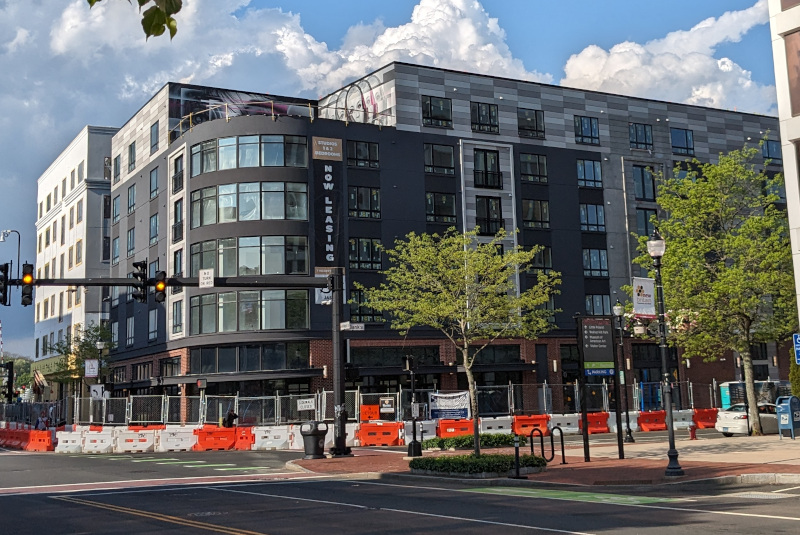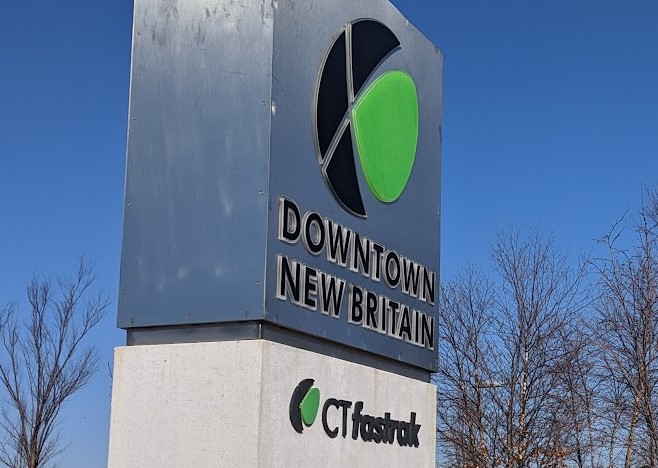
Council Gets Public Report on Developer Tax Breaks Despite Mayor’s Veto – Republicans Vote Down Further Review
Despite a veto by New Britain Mayor Erin Stewart (R) of local legislation to require public reporting of tax breaks for developers, City Council members devised a way to get them reported, anyway.
But in a tie 7 to 7 vote, Council Republicans voted down an attempt by Council Democrats to refer the report to one of the Council’s committees for answers to further questions about the information in the report.
Stewart has vetoed three government transparency proposals approved by the Council, including one that would have required that a report be made to the Council on a tax modification agreement for low and moderate income and luxury housing.
Stewart said that she vetoed it because it would be redundant and even belittled the elected Council members, accusing them of “indolence.” Stewart also made the case that the public reports on the Council agenda were not needed because Council members have behind the scenes access to all public records. But the proposals called for the reports to be on the publicly-available Council agenda, where they are freely available to the public. The city charges for public access to public documents that are not published on Council agendas.
But Council member, Ald. Candyce Scott (D-3) used a tool called a Council “petition” to require that the tax modification agreements for one developer, Jasko Development, and the benefits provided, be reported to the Council. A Council petition allows Council members to require reports from city departments in response to specific questions or requests.
Despite Stewart’s assertion that such reports were “redundant,” the report just received by the Council appears to show a supplementary agreement in which the number of units and amount of business space to be built were apparently reduced.
This “letter agreement”, saying it is, to “clarify and better define certain wording,” concerning the tax modification for 267-277 Main Street, was dated the same day as the main agreement, but appears say that the provision for 90 apartments, “shall mean not less than seventy-five (75) residential units.” It appears to similarly say that 6,000 square feet of commercial retail space, “shall mean not less than 4,000 square feet.”
The reason for the change does not appear clear. The developer’s website appears to say that its development at 267 Main Street is to have, “60 Studio Apts.”, “38 One-Bedroom Apts.” and “9 Two-Bedroom Apts.”
The report received by the Council on three development projects provided little specifics on the tax relief amounts to be received by the developer, generally citing that they are taxes that have not yet been levied.
But the report does note grants that the city gave the developer for the three properties by action of the Mayor-appointed Commission on Community and Neighborhood Development. These include $650,000 for 267-277 Main Street, $1,600,000 for 283 Main Street and $173,000 for the Main Street property next to the Police Station.
While the technique to obtain the information appears to have gotten around Stewart’s veto, it does not require reports on all such agreements, as the ordinance would have required. Council members would only receive them after specifically naming the information they seek, and the petition technique does not appear to allow Council members to know when agreements are signed or about the existence of supplemental agreements.
Editor’s note (5/8/2024): The article was updated with news about the vote on the motion on refer the report to committee.



